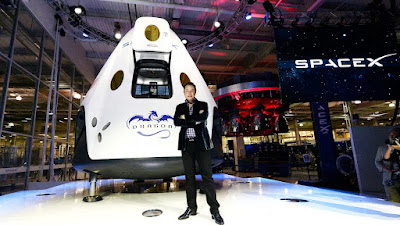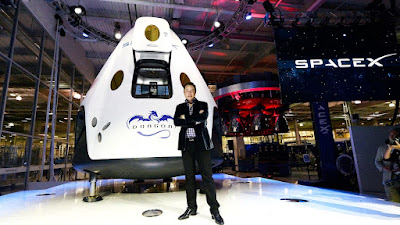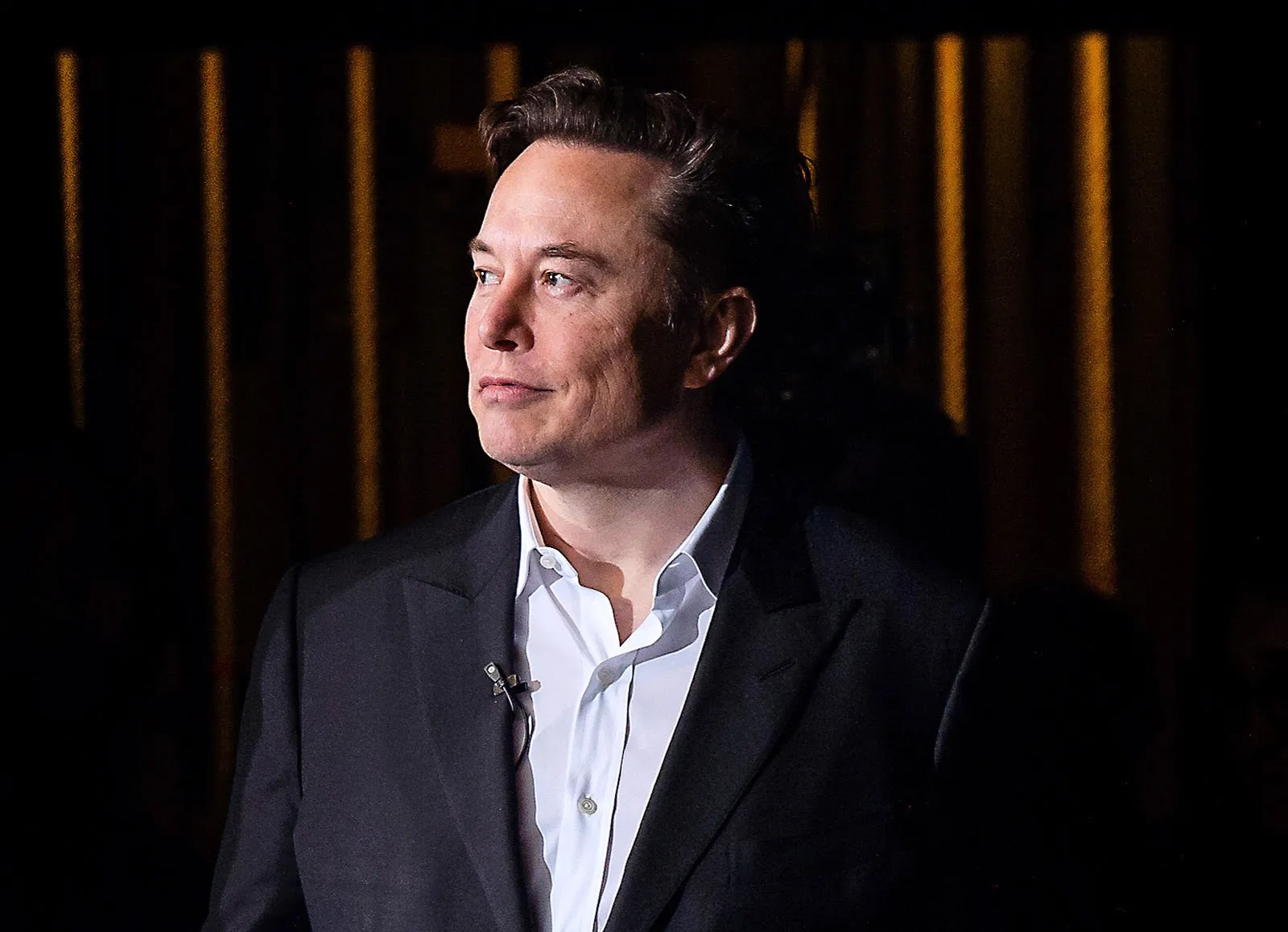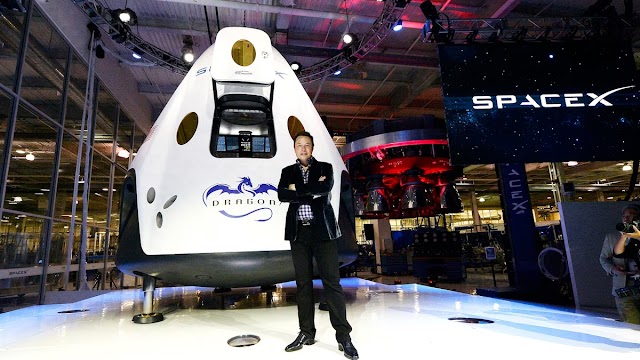The Future of Elon Musk's Space Company SpaceX: Insights from an Expert
Introduction
In this article, we delve into the future of SpaceX, the space company founded by the visionary entrepreneur Elon Musk. Our comprehensive analysis and insights aim to provide you with a deeper understanding of SpaceX's trajectory and its potential impact on space exploration, technology, and humanity as a whole.
SpaceX's Origins and Achievements
SpaceX was established in 2002 with the ultimate goal of reducing the cost of space travel and making life multi-planetary. Since its inception, the company has achieved numerous milestones that have solidified its position as a pioneering force in the space industry. Some of SpaceX's most notable achievements include:
1. First Privately Funded Spacecraft to Reach Orbit
The topic of the first privately funded spacecraft to reach orbit revolves around SpaceX, the innovative space exploration company founded by Elon Musk. SpaceX made history on December 23, 2008, when its spacecraft, Falcon 1, successfully reached Earth's orbit. This achievement marked a pivotal moment in the space industry, as it demonstrated that private companies could compete and succeed in space exploration, traditionally dominated by government agencies.
Falcon 1 was a two-stage, liquid-fueled rocket designed and manufactured by SpaceX. Its inaugural launch took place from Kwajalein Atoll in the Pacific Ocean. The mission faced previous setbacks, making the successful orbit insertion even more remarkable.
SpaceX's breakthrough not only showcased the company's technical prowess but also signaled a shift in the space paradigm. It opened up new possibilities for private investment and commercial ventures in space, leading to a renewed interest in space tourism, satellite launches, and future human missions to other planets.
The achievement underscored SpaceX's commitment to lowering the cost of space travel through reusable rocket technology. It laid the foundation for subsequent successful missions, like the Dragon spacecraft's resupply missions to the International Space Station.
Overall, SpaceX's first privately funded spacecraft reaching orbit was a pivotal moment that ignited a new era of space exploration, pushing the boundaries of what private enterprises could achieve in the cosmos. Through continued innovation and ambitious goals, SpaceX continues to shape the future of space travel and inspire the world to reach for the stars.
2. Dragon Capsule and Cargo Resupply Missions
The Dragon Capsule and Cargo Resupply Missions are significant ventures conducted by SpaceX, the space exploration company founded by Elon Musk. The Dragon Capsule, a spacecraft designed to transport both crew and cargo, has played a crucial role in advancing space technology and enabling resupply missions to the International Space Station (ISS).
The Dragon Capsule boasts a sleek, innovative design and is equipped with state-of-the-art systems for safe and efficient space travel. Its development marked a major milestone in the realm of commercial spaceflight, as it became the first privately-built spacecraft to visit the ISS, showcasing SpaceX's prowess in space exploration.
Cargo resupply missions involving the Dragon Capsule have become routine operations, ensuring a steady flow of essential supplies, scientific experiments, and equipment to astronauts aboard the ISS. This capability has alleviated dependence on traditional government-run missions and revolutionized space logistics.
The missions' success lies in SpaceX's reusability approach, where they recover and reuse the Dragon Capsule for multiple missions, significantly reducing costs and environmental impact. It exemplifies the company's commitment to making space exploration more accessible and sustainable.
The Dragon Capsule's advancements have not only impacted ISS missions but have also opened up new possibilities for future endeavors, including the potential to transport humans to other celestial bodies like the Moon and Mars.
In conclusion, the Dragon Capsule and Cargo Resupply Missions symbolize SpaceX's remarkable achievements in space exploration, propelling humanity toward a future where space travel and interplanetary missions are within reach. Through groundbreaking technology, relentless innovation, and determination, SpaceX continues to inspire the world with its ambitious vision for the future of space exploration.
3. Reusable Rockets with Falcon 9
Falcon 9, the groundbreaking creation of Elon Musk's SpaceX, represents a remarkable leap forward in space exploration with its innovative reusable rocket technology. Reusable rockets have revolutionized the aerospace industry by significantly reducing the cost and increasing the efficiency of space missions.
The concept is ingeniously simple yet technologically sophisticated. Falcon 9's first stage, responsible for the initial boost during liftoff, is equipped with multiple engines and landing legs. After successfully propelling the rocket into space, the first stage separates and begins its descent back to Earth. Instead of becoming space debris like traditional expendable rockets, Falcon 9's first stage performs a controlled landing, either on a drone ship in the ocean or a landing pad on solid ground.
This groundbreaking approach enables SpaceX to recover and refurbish the first stage for future missions, resulting in substantial cost savings. The ability to reuse rocket components not only reduces manufacturing expenses but also streamlines launch preparations, allowing for more frequent launches and a higher flight cadence.
The success of Falcon 9's reusable rocket technology has marked a turning point in space exploration, encouraging other aerospace companies to pursue similar advancements. By making space missions more economical and sustainable, reusable rockets pave the way for ambitious projects, such as crewed missions to Mars and beyond.
In conclusion, Falcon 9's reusable rocket technology represents a monumental achievement in the field of space exploration. It has redefined the possibilities of reaching the stars by making space travel more cost-effective, environmentally friendly, and accessible. As the world continues to look to the skies, the ingenuity of reusable rockets like Falcon 9 will undoubtedly play a pivotal role in shaping the future of space exploration.
The Visionary Leadership of Elon Musk
At the heart of SpaceX's success lies the visionary leadership of Elon Musk. As the CEO and lead designer of the company, Musk's ambitious goals and determination have been instrumental in driving SpaceX forward. His audacious vision of establishing a human colony on Mars has captivated the world's imagination and sparked renewed interest in space exploration.
Advancements in Rocket Technology
1. Starship: The Interplanetary Transport System
Starship is a revolutionary spacecraft designed by SpaceX, the aerospace company founded by Elon Musk, with the ambitious goal of enabling human exploration and colonization of other planets. Also known as the Interplanetary Transport System, Starship represents a paradigm shift in space travel, promising to make interplanetary journeys more accessible and sustainable.
At its core, Starship is a fully reusable, stainless-steel spacecraft capable of carrying both crew and cargo to various destinations, including the Moon, Mars, and beyond. It stands at an impressive height and boasts a sleek, futuristic design that captures the imagination of space enthusiasts worldwide.
The spacecraft's powerful Super Heavy booster, equipped with multiple powerful engines, provides the necessary thrust for the initial stage of launch. Once in space, Starship detaches from the booster and continues its journey independently, propelled by its own Raptor engines.
One of the key features of Starship is its reusability, a crucial aspect in reducing the cost of space travel. After completing a mission, the spacecraft returns to Earth, performing a precision landing, ready to be refueled and relaunched for another expedition.
The vision behind Starship extends far beyond Earth's orbit. Elon Musk envisions using this advanced spacecraft to establish sustainable human colonies on Mars, transforming humanity into a multi-planetary species, and safeguarding our existence in the face of potential challenges on Earth.
Starship's development represents an exciting chapter in the quest for space exploration, with the potential to revolutionize our understanding of the cosmos and pave the way for a new era of interplanetary travel and human presence in the cosmos.
In conclusion, Starship: The Interplanetary Transport System embodies humanity's drive to explore the stars, pushing the boundaries of space technology to unlock a future where the realms beyond our planet are within reach. With its cutting-edge design, reusability, and grand vision, Starship stands as a beacon of hope for a future where space exploration becomes a reality for the many, not just the few.
2. Super Heavy Booster
The Super Heavy booster, designed to accompany the Starship, will be the first stage of the launch system. Its sheer power and ability to return to Earth for reuse will play a crucial role in making SpaceX's vision of colonizing Mars a reality.
Satellite Internet: The Starlink Project
One of SpaceX's ambitious endeavors is the Starlink project, aimed at providing global high-speed internet coverage through a constellation of satellites in low Earth orbit. With thousands of satellites launched, Starlink has already demonstrated impressive internet speeds and low latency in early testing phases, revolutionizing internet connectivity in remote and underserved areas.
Mars Colonization: A Bold Step Forward
SpaceX's long-term goal of colonizing Mars represents a significant leap for humanity. While still a daunting and complex undertaking, the company's focus on reusable technology and continuous innovation instills confidence in the feasibility of such a mission. A self-sustaining colony on Mars could serve as a crucial backup for humanity and potentially unlock new scientific discoveries.
SpaceX's Impact on Space Exploration
SpaceX's remarkable progress has not only revitalized interest in space exploration but has also initiated a paradigm shift in the aerospace industry. As the company continues to advance its technology, the following are some potential impacts it may have:
1. Commercial Space Travel
The success of SpaceX's reusable rocket technology has opened up possibilities for commercial space travel. In the future, space tourism could become a reality, allowing civilians to experience space firsthand.
2. Interstellar Travel
While interstellar travel remains a distant dream, the advancements made by SpaceX in propulsion technology and interplanetary travel could pave the way for potential missions beyond our solar system.
3. International Collaboration
SpaceX's endeavors have encouraged collaboration between countries and private companies in space exploration. Shared resources and knowledge may lead to more efficient and cost-effective space missions.
Conclusion
SpaceX, under the visionary leadership of Elon Musk, continues to push the boundaries of space exploration and technology. With achievements like reusable rockets, the Starlink project, and the ambitious goal of colonizing Mars, the company's impact on humanity's future in space is undeniable.














0 टिप्पणियाँ